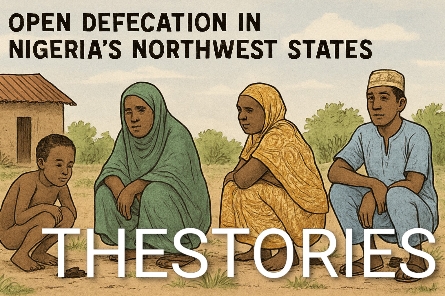The fight against open defecation in Nigeria’s Northwest has entered a new phase, with seven state governments pledging to make sanitation a priority in their 2026 budgets.
At a regional conference in Sokoto, delegates from Sokoto, Kebbi, Kano, Jigawa, Kaduna, Zamfara, and Katsina committed to funding programmes that will expand household toilets, intensify hygiene campaigns, and support communities most in need.
The two-day meeting, hosted at Dankani Guest Inn and supported by UNICEF’s Water, Sanitation, and Hygiene (WASH) programme, focused on scaling up the Sanitation Voucher Initiative—a scheme that helps vulnerable households build or improve toilet facilities.
For Zamfara’s Commissioner for Local Government and Chieftaincy Affairs, Engr. Ahmad Garba, the issue is personal and urgent.
“Open defecation is a public health time bomb, fuelling diseases like cholera and dysentery. Not every family can afford to build a toilet, but this voucher programme changes that. Zamfara is all in,” he declared.
Garba also made a moral appeal, stressing that hygiene is a value embedded in both Islamic and Christian teachings.
“Cleanliness is not just a health requirement—it’s a religious and cultural duty,” he said.
Despite concerns that insecurity could slow progress, Garba pointed to Katsina State’s remarkable record—33 out of 34 LGAs there are already open defecation-free—as proof that results are possible with strong leadership and community mobilisation.
The conference closed with a strong message: tackling open defecation will require political will, grassroots engagement, and cross-border collaboration. With sustained effort, the Northwest could help Nigeria meet its target of becoming open defecation-free by 2030, in line with the Sustainable Development Goals.


